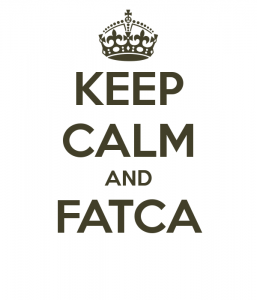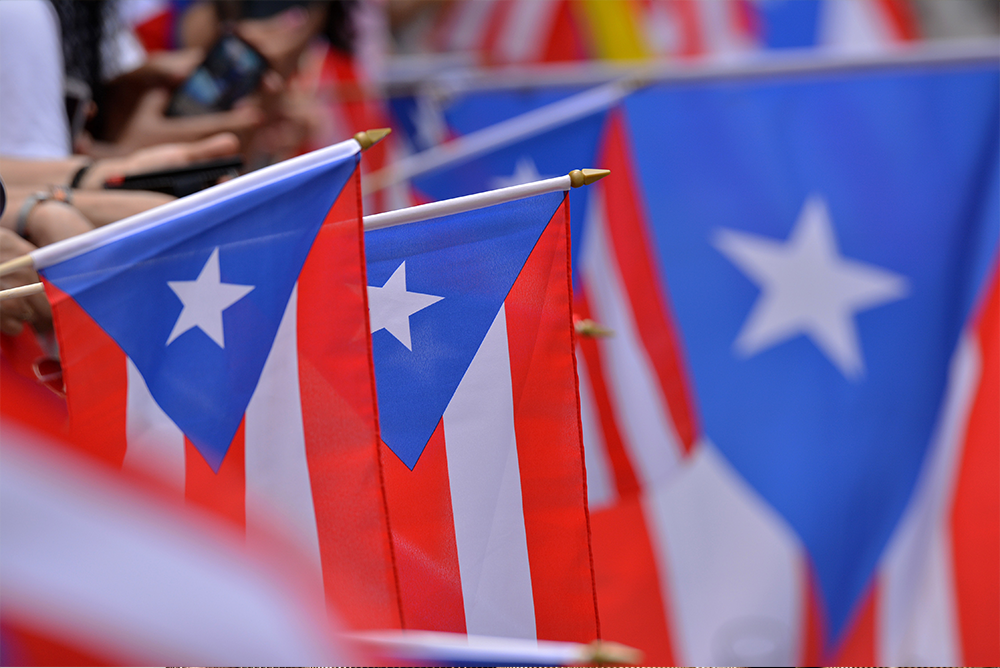Puerto Rico Tax Deals for Corporations
Thinking about moving your business offshore? If you are a US citizen, and your profits exceed $400,000, I guarantee Puerto Rico has a better deal for you.
- This article was published in 2013. For a more up to date post from December of 2015, see Blood in the Streets- the Puerto Rico Tax Deal and Foreign Earned Income Exclusion vs. the PR Tax Deal.
- The article below is focused on business owners that wish to move to PR. Act 20 allows you also allows you to live in the US operate a business with 3 employees from PR and pay only 4% corporate tax. Check out the Blood in the Streets post for more information on how to negotiate a deal and still live in the US.
As I reported last month, a US citizen can move to Puerto Rico and pay zero capital gains tax on his or her passive income and investments. That’s right, no US Federal or State tax on capital gains tax from real estate, stocks, and/or other investments acquired after you move to and become a resident of Puerto Rico.
This time around, I am here to tell you that Puerto Rico has a deal for business owners and entrepreneurs…a deal you can’t find anywhere else in the world unless you turn in your US passport.
Puerto Rico is offering business owners a tax contract similar to the one Switzerland and Russia negotiates with high net worth Europeans. Yes, Snowden’s Russia is a tax haven. For example, the actor Gérard Depardieu, angry over a plan by the French government to raise taxes to 75 percent for the wealthy, accepted a Russian passport from President Vladimir V. Putin. Russia has a flat tax rate of 13 percent.
A tax contract with Puerto Rico will allow you to cut your total (worldwide) tax rate down to 10% or lower without the need for any complex planning or structuring. Once you enter in to a contract, it can’t be modified or revoked by the government until 2036. Of course, you can leave Puerto Rico, thereby opting out of the tax deal, at any time. You can also spend a few months a year in the United States.
To receive these benefits, you are required to move yourself and your business to Puerto Rico, spend at least 183 days a year on the island, become a legal resident of this territory, and enter in to a tax contract with the government. Once you have relocated, you have opted out of the US Federal and State tax systems and in to the Puerto Rico tax code…which trumps the Federal code.
- As a US territory, Puerto Rico’s tax code takes precedent over the US Federal tax code. While US Expats are bound by Federal tax law, American’s in Puerto Rico need only follow local tax rules.
Such a contract is the inverse of the Foreign Earned Income Exclusion (FEIE) and allows you to pay all of your taxes now at a reduced rate without the need to lock earnings in to an offshore corporation, captive insurance company, or some other complex tax deferral mechanism.
Let me explain: If you qualify for the FEIE you can earn up to $97,600 in salary free of Federal income tax in 2013. If a husband and wife are both working in the business, they might take out $195,200 combined. That is a major tax break which allows a properly structured offshore business earning $195,200 to be completely free of US tax.
Well, what if your business earns significantly more than the FEIE amount? You can usually retain excess profits in to your corporation and thereby defer US tax until you distribute these profits as a dividend. Capital gains, interest income and other returns derived from these retained earnings are taxable (may not be deferred) and dividends are taxed as ordinary income.
While the FEIE works great for those with business profits near the exclusion amount, it is not so wonderful for those earning significantly more. If you net $1 million a year and want to take that money as income now, then you are stuck paying US tax on the amount over the FEIE at 39.6% in 2013. This comes to about $318,000 in Federal income tax assuming a husband and wife both qualified for the FEIE and no State tax is due (($1m – $195,000) x .396) = $318,000. If only one person qualifies for the FEIE, your tax bill will be about $357,350 (($1m – $97,600) x .396) = $357,350.
In Puerto Rico, you pay income tax on the first $250,000 (using a graduated rate of up to 33%) and 4% on income over $250,000. There is no need to retain earnings in an offshore corporation and no issues related to tax deferral. You are paying tax each year as the money is earned…at a lower rate compared to those of us in the States, but no deferral or retainer earnings to worry about.
For example, on $1 million of business profits, your tax bill in Puerto Rico will be about $105,000, significantly less than the same US owned business operating offshore using the FEIE. This equates to an effective tax rate of about 10% ((.30 x 250,000) + (.04 x 750,000)) = $105,000 or 10%.
As your net profits increase, the benefit of Puerto Rico’s tax system increase and your effective tax rate drops. For example, on net profits of $3 million, your tax is approximately $185,000, for an effective tax rate of 6.2% ((.30 x 250,000) + (.04 x 2,750,000)) = $185,000 or 6.2%.
As stated above, if your net profit is anywhere near the FEIE amount, then living and working abroad and operating through a foreign corporation will give you the best tax deal. If your profits are between $100,000 and $500,000, then you might need to run the numbers to determine whether Puerto Rico or the FEIE provides the better option. Such an analysis would take in to account how much you are willing to retain in to an offshore corporation, how long you can lock those profits away, and the deductions you have available on your US personal income tax return (itemized deductions such as mortgage interest, property tax, charitable contributions, etc.). I have not considered these issues in the examples provided.
What about those of us earning less than $1 million from our business? In Puerto Rico, you will be required to take salary of 1/3 of your net profits, up to a maximum salary of $250,000, and pay 4% on the remaining 2/3. So, if you earn $300,000 in total profits, your tax would be about $38,000 or 12.6% ((.3 x $100,000) + (.04 x $200,000)) = $38,000 or 12.6%.
If that same $300,000 was earned as salary by a US citizen using the FEIE and an offshore corporation, the first $97,600 would be tax free and the remaining $202,400 would be taxed at around 31% in 2013. This means your US Federal income tax will be about $62,644 (($300,000 – $97,600) x .31) = $62,644 for an effective rate of about 20%.
If a husband and wife are both working in that business with a net of $300,000, the FEIE amount becomes $195,200, and the balance is taxed at approximately 29%, for a total tax of $30,392. Therefore, at this income level it will be more efficient for a single person to operate in Puerto Rico and a married couple to be based offshore (($300,000 – $195,200) x .29) = $30,392 or about 10%.
When you combine these business tax incentives with the personal tax benefits of zero capital gains, you have a very strong contender in Puerto Rico. It is a deal that no country in the world can offer a US citizen.
So, why is Puerto Rico doing this? This island territory is in its 8th year of recession and is desperate to attract some wealth and prosperity. 4% tax on business profits is better than no business and no tax revenues.
How bad is the economy? Puerto Rican bonds are sold in the US with yield above 10%, which is extremely high. So high that Puerto Rico was forced to cut its offering this week the island’s Government Development Bank announced it would cut bond sales to between $500 million and $1.2 billion for the rest of the year. This yield compares to California municipal bonds at a current high of 3.13%, up from 2.17% at the end of 2012.
As the territory struggles with $70 billion in public debt and a 13.9% unemployment rate, higher than any U.S. state, it is searching for new ways to bring in capital, employment and investment. The government hopes to cut its $820 million budget deficit in half by 2015.
But, there is hope for Puerto Rico. While the US is completely out of control, Puerto Rico’s deficit has been reduced from $2.4 billion over the last couple of years. The island’s five-year economic plan calls for creating more than 90,000 jobs that would add as much as $7 billion to the economy by 2016, and another 130,000 jobs and as much as $12 billion of growth by 2018.
While these tough economic times might prevent a firm from building a large factory, or committing millions to the Island, they should not deter a high net-worth investor and business owner from picking up and moving. These tax incentives are guaranteed by the government until 2036 and can’t be withdrawn or amended. Even a law change would have no affect because your earnings are not locked in to the corporation, as they are with retained earnings in excess of the FEIE.
For more information, here are some links to other sites.
Links to Outside Resources
- Detailed Report on Puerto Rico
- Bloomberg on Puerto Rico’s Incentives
- NPR Audio on Puerto Rico’s Incentives
- Is Puerto Rico the Next Liechtenstein?
- NY Times on Puerto Rico’s Incentives
- Fox Business Interview on Moving to Puerto Rico
If you are considering moving your business to Puerto Rico or abroad, please contact me for a confidential consultation. You can reach me directly at info@premieroffshore.com or (619) 483-1708.












Leave a Reply
Want to join the discussion?Feel free to contribute!